Interview: Vanessa Garcia And Victoria Collado of AMPARO
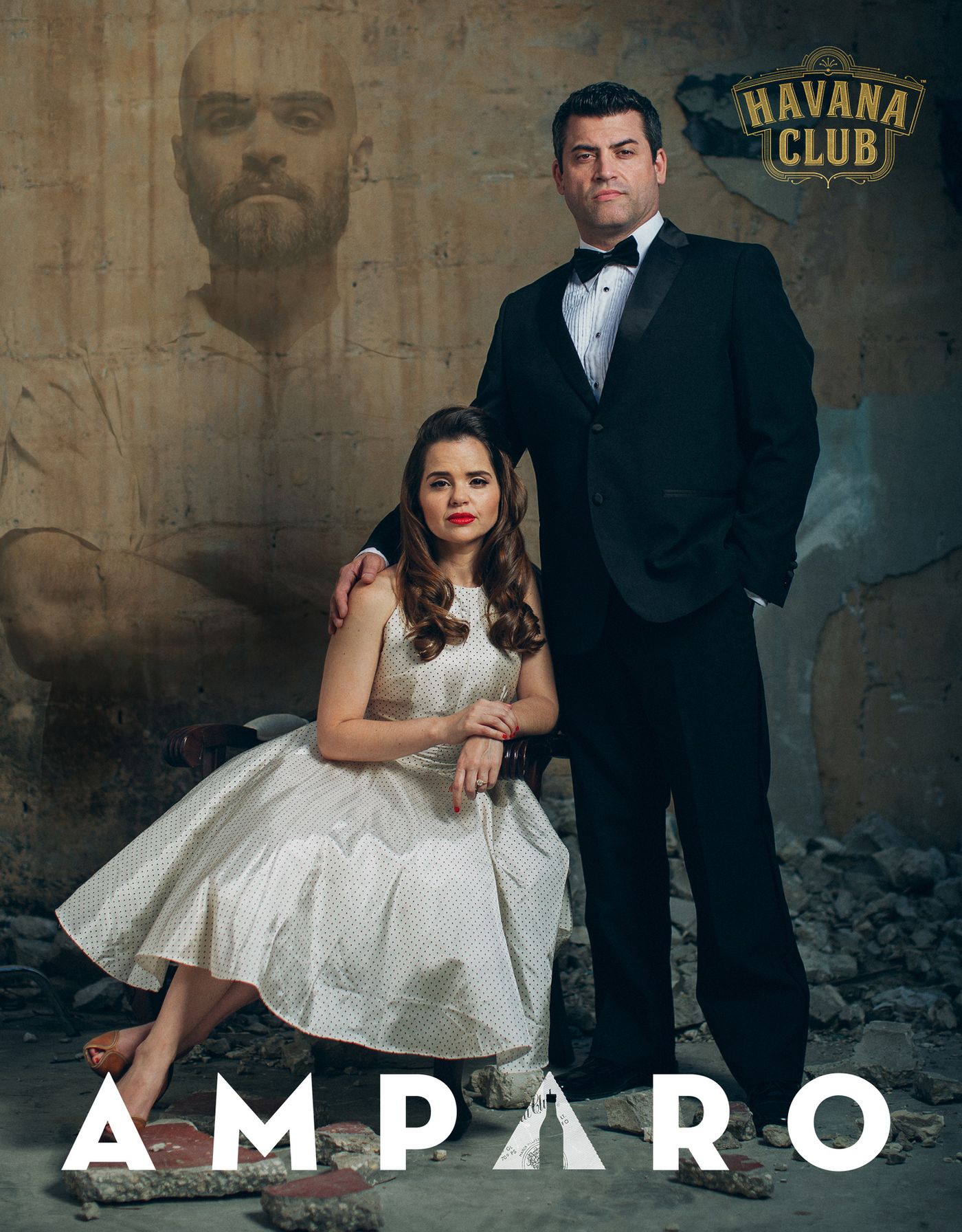 Approximately 330 miles... That's how far Havana, Cuba is from Miami, Florida. Within that space lies a distance of less than an hour. However, to some people it might as well be a lifetime away. I remember all my childhood being told about what Cuba used to be by my grandparents. As a third generation Cuban American living in Miami, Florida, as soon as we start to crawl, you are hearing about the good ole days before Fidel Castro stole Cuba from the people - people who still long for home. So I was thrilled to research into AMPARO. This one of a kind immersive theater experience is based on the compelling, true story of an immigrant family's triumph through exile. From present-day Miami to 1957-Cuba, where you will follow cast members through the Cuban Revolution, bearing witness to the story of the Arechabala family--founders of THE REAL HAVANA CLUB rum.
Approximately 330 miles... That's how far Havana, Cuba is from Miami, Florida. Within that space lies a distance of less than an hour. However, to some people it might as well be a lifetime away. I remember all my childhood being told about what Cuba used to be by my grandparents. As a third generation Cuban American living in Miami, Florida, as soon as we start to crawl, you are hearing about the good ole days before Fidel Castro stole Cuba from the people - people who still long for home. So I was thrilled to research into AMPARO. This one of a kind immersive theater experience is based on the compelling, true story of an immigrant family's triumph through exile. From present-day Miami to 1957-Cuba, where you will follow cast members through the Cuban Revolution, bearing witness to the story of the Arechabala family--founders of THE REAL HAVANA CLUB rum.
AMPARO, makes its official South Florida premiere after two well-received theatrical pilots in New York and Miami. AMPARO, the brainchild of playwright, Vanessa Garcia, is brought to life in this guided theater experience led by director, Victoria Collado, together with Tony and Emmy-winning executive producers, The Broadway Factor ("American Son", "Kinky Boots").
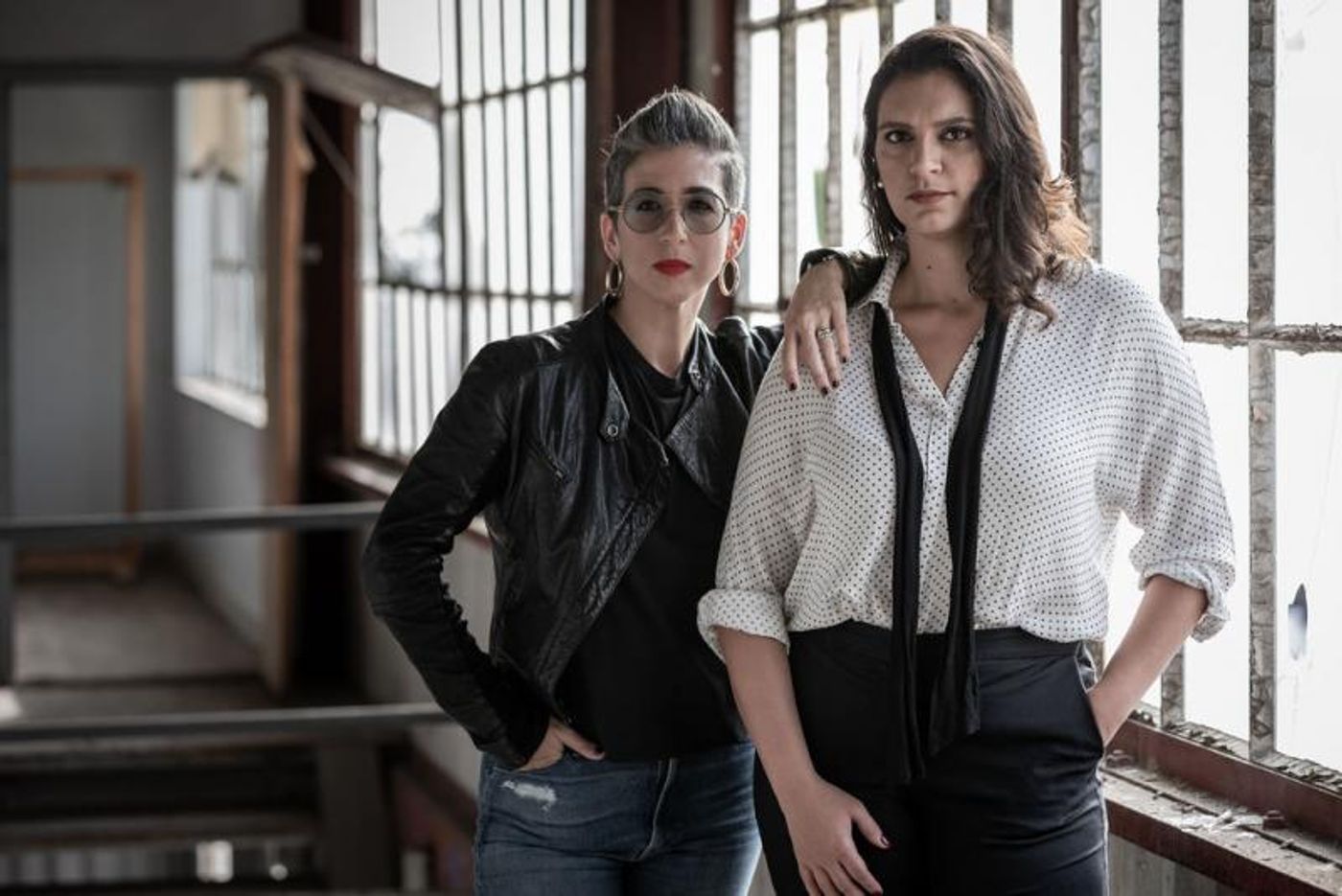 Vanessa Garcia, is a Cuban-American, award-winning, novelist and playwright, Ms. Garcia authored White Light, one of NPR's Best Books of 2015 and is an International Latino Book Award recipient. Victoria Collado, is a Cuban-American director, who worked as Assistant Director of John Leguizamo's highly acclaimed Latin History for Morons on Broadway.
Vanessa Garcia, is a Cuban-American, award-winning, novelist and playwright, Ms. Garcia authored White Light, one of NPR's Best Books of 2015 and is an International Latino Book Award recipient. Victoria Collado, is a Cuban-American director, who worked as Assistant Director of John Leguizamo's highly acclaimed Latin History for Morons on Broadway.
Speaking to the creators of AMPARO, Vanessa and Victoria, felt as easy as talking to family friends since we have a common story, Cuba. Yet, this story transcends Cuba. It transcends Miami. This story is about immigrants who were kicked out of their country and taken advantage of by their government. Yet, those immigrants never lost their resolve.
Why does this story need to be told? Why now?
Vanessa: This story in Miami is a story we have heard a lot, the story of the Cuban exile. But what we are doing right now and that we find incredibly important is that this is not just telling people...Here's this family, they lost everything. They were devastated by this loss. They were exiled and then somehow in here there's some hope, right? What we want is people to actually experience the revolution, what it was like to have actually gone through that loss and what it might mean on a sort of visceral and emotional level because we feel like it is not going to be communicated through a bunch of people screaming in a protest or someone talking on a podium but through actually going through an experience you can feel emotionally connected to what is happening. I think it is important now because number one there is a light on Cuba right now and there is the fact that we are a younger generation of Cubans telling the story-a kinda of inside out perspective- double footed perspective on both sides of what used to be a line and we are trying to blur and not make a line. We have the ability to understand very deeply our parents and the people who came from Cuba on many many waves. We also have the understanding of what its like to communicate with an American and International audience. And the other thing is that this is the moment in which we have a refugee crisis in the world and so this is not just about Cubans. It is about Venezuelans, Syrians, Mexicans, and anybody who has ever had to cross a border in their life.
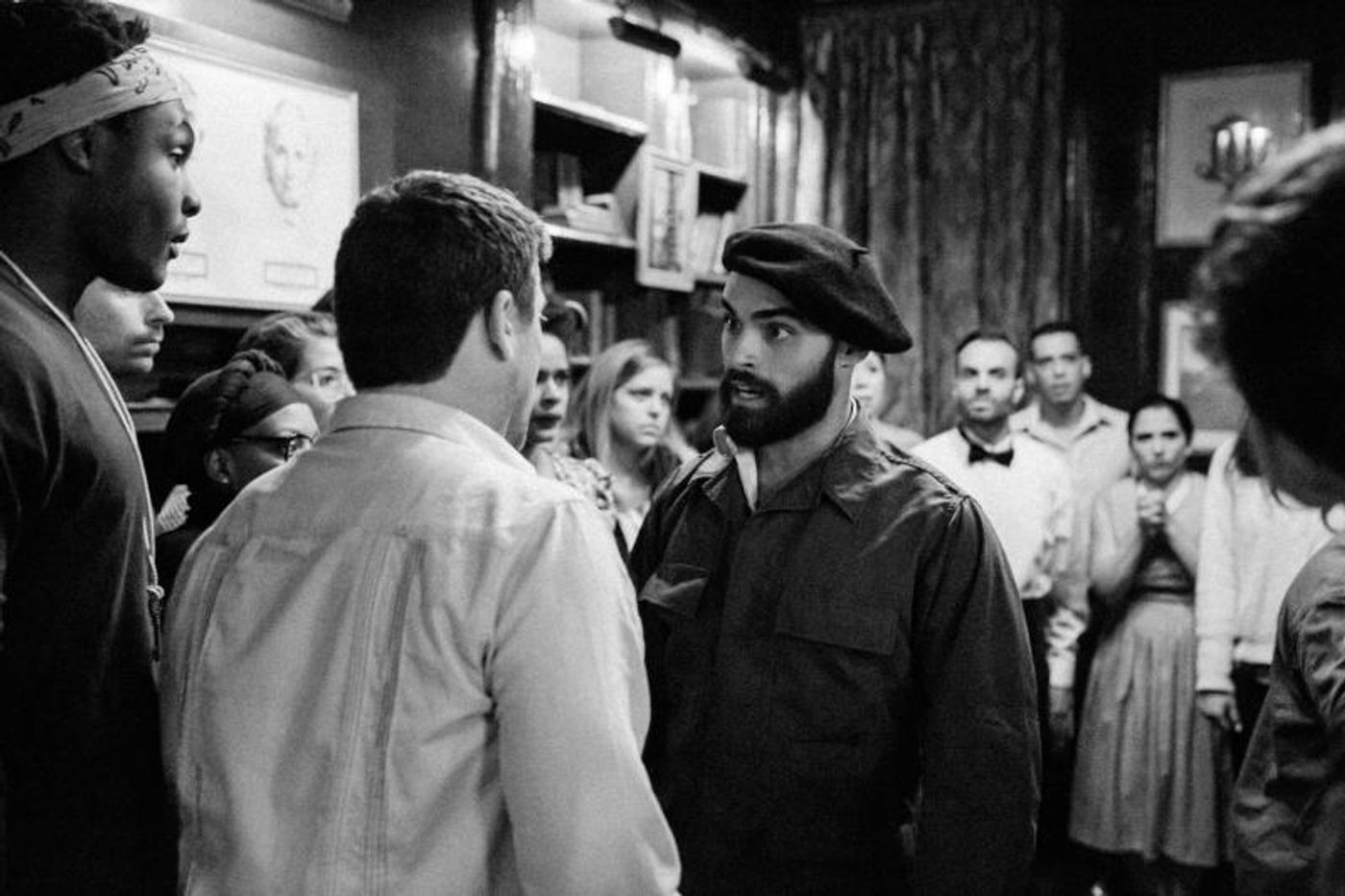 What do you hope someone who is not Cuban-American will take away from this story?
What do you hope someone who is not Cuban-American will take away from this story?
Victoria: What was interesting about doing the AMPARO experience as pilots previously is that we saw the impact it had in Miami. It's an easy connecting point. Our big challenge, we thought was going to be New York. What we realized is that... I had been living in New York now for about 6 years and people's perception of Cubans, especially exiled Cubans, is that there's a general thing that there's these crazy Cubans down there are only talking about Cuba. And I think that every person that comes through that door will become a Cuban for an hour and a half. And they will go through that experience and that's why when the story becomes your story that experience will cause you to put yourself in someone's shoes. So, then I hope that people who aren't Cuban, who actually don't even have a close direct relationship with refuge, they will be able to put themselves in that situation and have an understanding of other people not only Cubans but for everyone else that is going through something similar.
Vanessa: The universal is in the specific...We want people to leave with an understanding of a truth and of what the Real Havana Club is and what that means to the bigger picture. Basically it's as if one side of a story has been told and what we are saying is let us see another point of view. Let us see the other story for the first time. So, it is the lifting of a veil. In essence, we want the audience to leave with truth, a piece of knowledge they didn't have before they came in and an understanding of what we say when we say the Real Havana Club which is also what it means to be authentically Cuban-what it means to be authentically American even- what it means to be a part of a world where borders are constantly crossing.
.jpg?format=auto&width=1400) How are you two in a unique position to tell this story?
How are you two in a unique position to tell this story?
Victoria: One of the main things Vanessa and I always talk about is why it is the responsibility of the Cuban-American or as Vanessa says a lot- the American Born-Cuban. It is because for a very long time I have lived in between these two worlds. I wasn't Cuban enough for the Cubans and I wasn't American enough for the Americans. And for a very long time, I saw that as a fault until I realized the benefit of that which is I can speak in American Culture and we can share the story of the Cuban people to the American [people]. We are the bridge. We can be the bridge and talk of the point of view with a little bit of distance.
Vanessa: It's not just me and Vicky. It's the actors. The actors are a microcosm of what we believe is going to happen to the greater community. As they have been going through the process of creating this over the past year, they have been connecting with own their families and rediscovering and uncovering what they did not know about their own family. What we are doing with our Instagram page @AbreCaminoCollective is showing the real stories of AMPARO, meaning the real stories behind the families of the actors...we are this giant family who has these big truths. We are obviously deeply connected to this story. We both have family that is from Cuba. I have family what was imprisoned for 15 years and Vicky has family that left through Mariel. Between the both of us, we have experienced every wave of migration from the island.
How have the two theatrical pilots affected or changed this premier in Miami?
Victoria: They have completely influenced the story. We have been working on AMPARO for a year. What we learned in Miami is that the audience was there and the emotion was there. It was an easy sell because we were telling the Cuban story to the Cubans. However, in New York, we really had to [decide] what was at the root of every character. Miami was very much about the spinal cord of the story the Arechabala family. What New York gave us was the tracks. New York gave us the ability to follow those characters. That's when we really started playing with...that's what happens when you follow people and you can still have narrative. This is based on a true story so we have to be sure that the narrative is still there. So we have been working on how do we give that spinal cord but still give these individual tracks.
Vanessa: Something really cool that happened also structurally and also spatially is that when we did the first pilot in Miami in Ball and Chain it was a one floor court yard which was very large and circular. In New York, we did it in a vertical space, very narrow, up and down three stories. And so in essence, the story went deep into the roots of something in New York. Now in this new iteration of it, it combines both things. It's this wonderful dance between the two pilots' production and development of both of those spaces combining this wonderful house that is a home for the piece.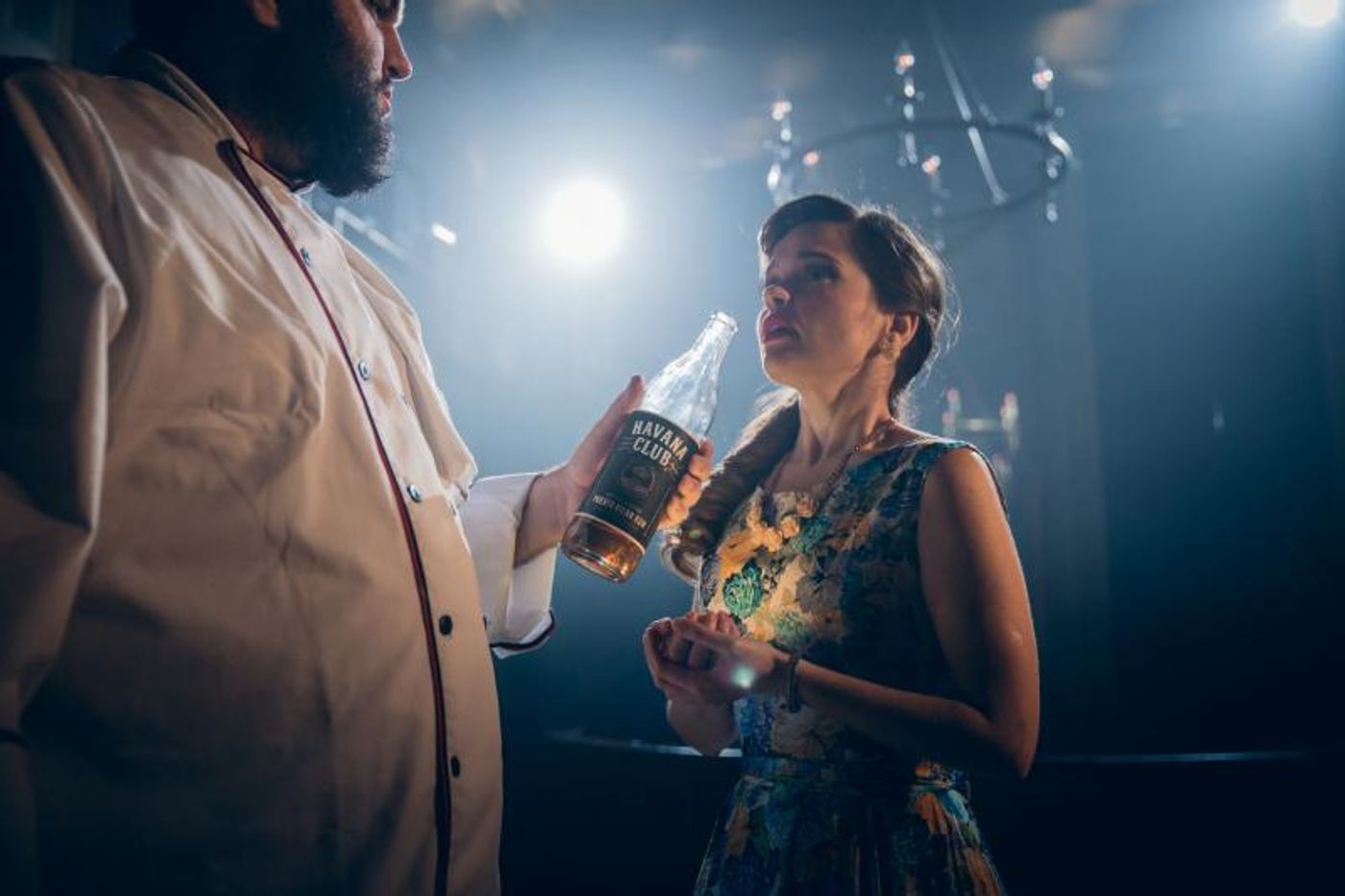
Are there any steps you take to prepare your actors for an immersive theatre experience?
Victoria: Every day we train together. We have a set of exercises we do together to get them into rhythm together in which they learn how each other move. The tempo that each other move on because they need to know that in the other room something else is happening. They should be able to be in the house and know where everybody is ideologically speaking. There is a lot of training that has happened to learn to work as an ensemble. It is the number one thing for me with any play but especially AMPARO because you have to know exactly how the machine works and your teammates work to execute this the proper way. It's the understanding of how do I react in every single moment.
How many tracks are there in the story? Can you come multiple times and see another version? Does it work itself into one common story?
Vanessa: There are five tracks/entry points from which you start. Every single one of those tracks will see the central story...what changes is that [there are] the different points of view. If you think about it, it is like life. If you go to a party, everyone is at the same party but everyone is standing at a different location. Everyone has the micro of a different experience and the macro of the same one. There is also choice in the piece.
Victoria: Something that we found and that is really important is that we are playing with the ability of choice a lot because it's interesting between the limiting of choice throughout the revolution. Instead of immersive theatre we like to call it experiential theatre. You can be in your track and then you can choose to follow someone else. The audience will have choices on where they get to go. That is the element we are perfecting now in rehearsal. You can come watch this show ten times and you will see something different.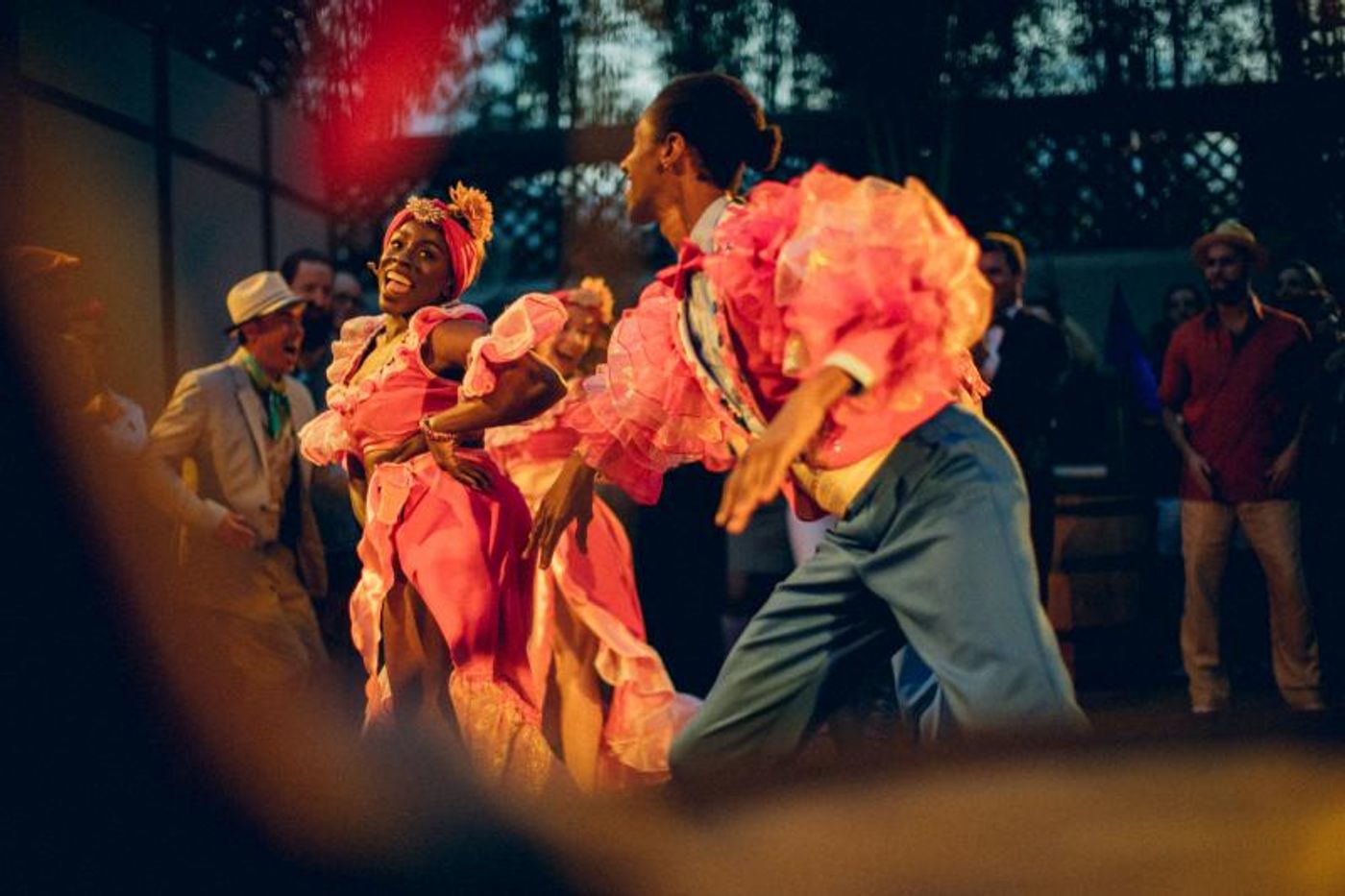
"AMPARO" is in town for a limited two-month run. Showings begin April 4th in a private historic villa in Downtown Miami located at 221 NE 17th Street, Miami, FL 33132. Tickets are now on sale. Pre-sale ticket prices begin at $79 and include a pre-show cocktail hour with a series of imaginatively crafted, premium Havana Club cocktails, followed by a 90-minute guided immersive theater experience. After the show, guests are invited to lounge in the Havana Club rum garden and enjoy cocktails and small bites for purchase.
For showtimes and to purchase tickets, please visit www.TheAmparoExperience.com. Follow on Instagram @TheRealHavanaClub, #TheAmparoExperience.
The "AMPARO" Experience cast is as follows:
- Bertha Leal, as Young Amparo
- Susana Perez, as Older Amparo
- Rene Granado, as Young Ramon
- Roberto Escobar, as Older Ramon
- Gabriel Bonilla, as Calixto Lopez
- Hector Medina, as Evaristo
- Ariel Texido, as Juan Prado
- Yesler de la Cruz, as Antonio, the Mayordomo
- Nora Pantoja, as Regina
- Nicole Garcia, as Mar
- Alessandra Messa, as Celia, The Manicurist
- Jeffry Batista, as Padre Angel
- Melissa Almaguer, as Carmelina
- Ryan Rodriguez, as Young Miguel
- Francisco Gattorno, as Older Miguel
- Melissa Ann Hubicsak, as Edna
- Marcela Paguaga, as Young Margarita Maria Mendoza
- Vivian Ruiz, as Older Margarita Maria Mendoza
- Michael Ferreiro, as Javier, The Lawyer
- Robby Ramos, as Jorge, The Brand Ambassador
- Natalie Cabo, as Militia
- Ernesto Gonzalez, as Militia
- Pamela Mostacero, as Pamparo
|
Videos

